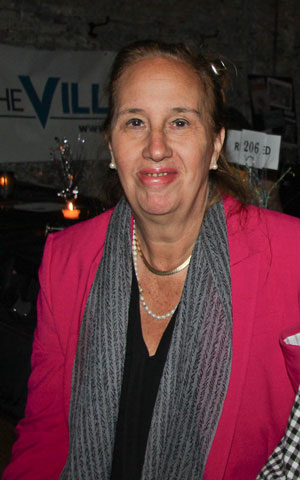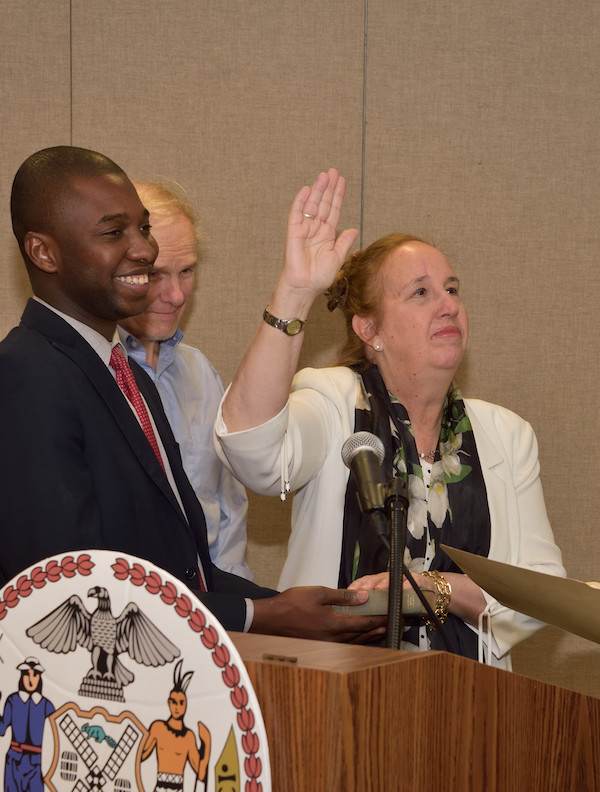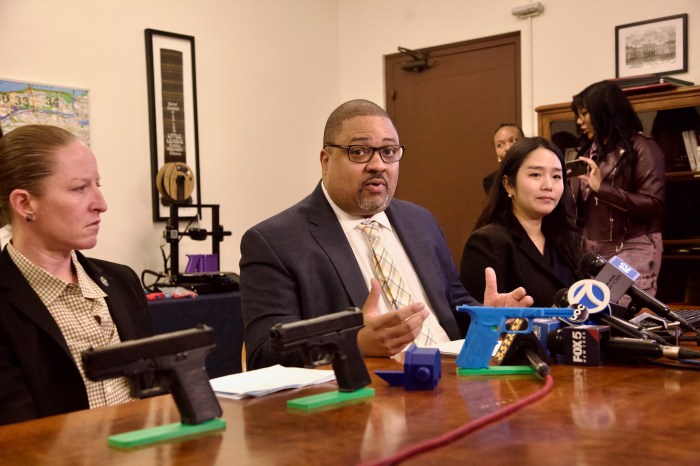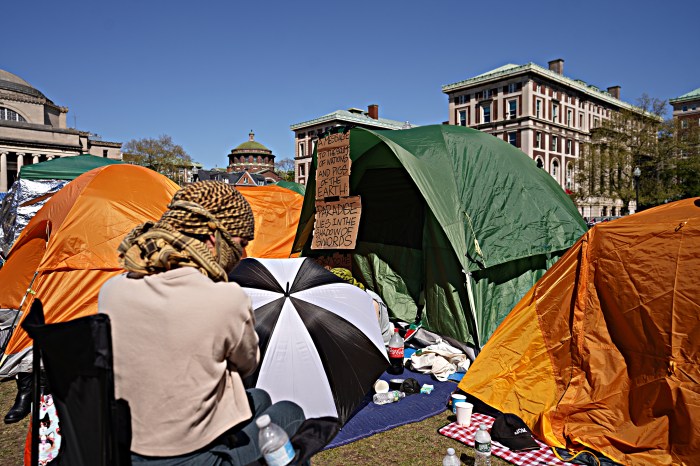
BY HEATHER DUBIN | Gale Brewer knows how to get things done. With more than 40 years of public- and private-sector experience behind her, the Democratic city councilmember’s run for Manhattan borough president is a potential boon for New Yorkers. If elected, Brewer, who is a strong advocate for low- and moderate-income people, could well transform the borough, and perhaps the city, too.
In a phone interview earlier this week, Brewer spoke about issues central to her campaign, and what she hopes to accomplish if elected. She will face Republican David Casavis in the Nov. 5 general election, which she is expected to win easily.
The borough president’s most important responsibility is zoning and land-use review. In a city saturated with luxury housing development, Brewer’s top priority is to ensure affordable housing is obtainable in Manhattan. Additionally, she wants to focus on preserving mom-and-pop stores, employment, technology and assisting neighborhood community boards.
Originally from Massachusetts, Brewer got her start in politics in the 1970s and ’80s through the women’s movement and her work in government. She was a member of the National Political Women’s Caucus of New York, later becoming its state chairperson in the ’80s. Brewer also worked for Mary Anne Krupsak, New York’s former lieutenant governor, and former City Councilmember Ruth Messinger, who represented the Upper West Side.
Brewer noted that Messinger, who went on to become Manhattan borough president, and feminist Gloria Steinem, who will be 80 in March, are inspirations for her.
“I don’t have a lot of mentors, but those two people I have a lot of respect for,” Brewer said.
Brewer was the director of the New York City Office of Federal Relations, and also headed its women’s division, under former mayor David Dinkins. Under former Public Advocate Mark Green, she was the deputy public advocate for intergovernmental affairs.
Aside from public work, Brewer has worked in affordable housing, and taught urban policy for more than 20 years at the City University of New York and Barnard College. Currently, she teaches at Hunter College.
Brewer was a member of the Upper West Side’s Community Board 7 for many years. When term limits kicked in, people suggested she run in 2001 for Councilmember Ronnie Eldridge’s Sixth District seat, which covers that community.
“It was because of my background in this neighborhood,” Brewer said of why people viewed her as the best successor to Eldridge.
She remembered the Democratic primary took place on Sept. 11, 2001, and the election was canceled two hours after the polls had opened.
“That was quite a beginning for the City Council,” Brewer said.
During her 12 years on the City Council, Brewer prided herself on providing constituent services and helping pass groundbreaking legislation.
“The loss of mom-and-pop stores in Manhattan, I hear about it everywhere I go,” she said. A study found that there were 72 bank branches in her Council district, only confirming the obvious — that there were far too many. Brewer passed a bill to restrict storefront size for incoming commercial tenants — mainly focused at banks and drug stores — to preserve space for small merchants.
“It makes a difference about what can come in,” she added of the legislation.
Brewer also passed a bill for food-sourcing for city contracts, which cover jails, hospitals, schools, daycare centers, senior centers and homeless shelters. According to Brewer, New York City is the country’s second-largest purchaser of food, after the U.S. Department of Defense.
Now, the food in city contracts must be purchased from within New York State, unless the item is too difficult to find here.
“There is one dairy left in Queens with 1,000 employees,” Brewer noted. They have a contract for the New York City Department of Education, and that saved 200 jobs because they got the contracts. I call that ‘local sourcing.’ ”
While Brewer acknowledged local sourcing has gotten more difficult as developers have come in with new grocery stores, it can still be done. When the Time Warner Center opened at Columbus Circle, Brewer negotiated that 230 jobs in the complex be filled by local workers.
“It became the model when IKEA came to Brooklyn, and when Fairway came to Brooklyn,” she said. “They used it as a prototype.”
The borough president currently has two offices, in the Municipal Building, at 1 Centre St., and in the Adam Clayton Powell State Office Building, at 163 W. 125th St. The borough president has 71 employees, some of whom shuttle back and forth between the two offices.
If elected, Brewer said she would not use the current Harlem office, and would instead set up shop somewhere nearby there in a storefront-type office.
Brewer’s current Council district office, which she refers to as “one-stop shopping,” is on W. 87th St. near Columbus Ave., and is easily accessible to people coming in for maps, applications or information about city and state services. She wants to continue this same accessibility, and is currently looking for a space.
If elected, Brewer would move forward on what she called “the number one issue in Manhattan and citywide — lack of affordable housing.” Brewer expressed frustration with what she called the borough’s lack of affordable housing.
“Teachers can’t find an apartment, and someone who’s making $13,000 can’t find an apartment,” she said.
Brewer thinks the solution is in local planning.
“That’s how you do this: Work with community boards, work with City Council, the mayor,” she said. “And every time there’s development, you figure out how to include affordable housing and work with community organizations to preserve what you have.”
Brewer was wary of Mayor Bloomberg’s development tactics, which amount to “trickle-down as opposed to trickle-up,” she said. “There’s a lot of building going on.”
With a scarcity of developable land in Manhattan, and the cost of construction, Brewer noted that Brooklyn and Queens are cheaper places to build.
However, she stressed, “I want to build affordable housing in Manhattan.”
With a new administration set to begin in 2014, Brewer hopes there will be a focus on affordable housing.
“It’s not an easy goal,” she said. “Everybody talks about it, and there are a couple of projects in my area. I know how to do it.
“I’ve been working on these issues for a very long time,” she noted. “I’ve done a lot of negotiations with developers on the West Side, and did it when I was on the community board.”
Brewer understands both the developers’ desire to make profits as well as the necessity of providing housing for middle- and low-income workers who are being forced out of the city since they can no longer afford to live here.
“It’s not right,” she said. “They provide the backbone of our neighborhood.”
Brewer also wants to provide community boards with a better framework, and continue outgoing B.P. Scott Stringer’s reforms of the selection process for members. In addition, since she passed the Open Data Law, which makes government data accessible to the public, Brewer wants to help community boards better decipher this information.
In terms of technology, Brewer wants to, as she put it, “keep working on that digital divide.” Public schools have computers that download information too slowly, are in frequent use and, in general, need to be updated. She would like to expand broadband, and wants to collaborate with the other borough presidents on technology projects.
“I think that’s never been done the last couple of decades,” she pointed out. In the wake of last year’s Hurricane Sandy, there are also storm-protection issues to confront, as well.
Some of her opponents in the borough president Democratic primary election made a point of saying they would have a “master plan” for Manhattan.
Asked if she has one, Brewer sounded a pragmatic note.
“A ‘master plan’ is good conceptually, but it takes a long time to carry out,” she said. “I don’t have a long time. I want to do things quickly. I’m an implementer — I like getting things done.”
Her efficiency ethic appears to correlate with her moral ethic. After her primary win, Brewer returned $72,000 of matching campaign funds to the city.
“We do have a Republican opponent, but I don’t feel he’s a serious opponent,” she said of the general election. “I don’t like to take the public money unless it’s needed.”
Brewer lives on the Upper West Side with her husband, Cal Snyder. They have raised many foster children, many of them during the crack epidemic of the ’80s, and adopted several of them.
Based on her own experience, and her understanding of what is happening in the public schools, Brewer would also like to see “culturally appropriate mental health services,” for students in the form of social workers and psychiatrists.


















